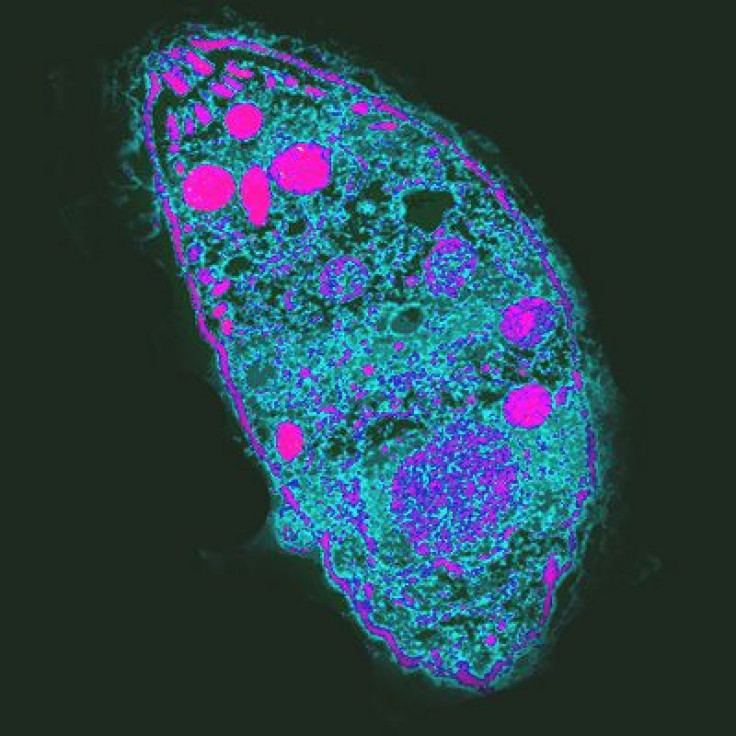Study Reveals How Tiny Suicide-Inducing "Cat Parasite" Hijacks Human Brain

Researchers have for the first time discovered how the clever "cat parasite," previously found to alter behavior and increase the risk of self-harm and suicide in infected humans, enters the brain to influence its host.
Instead of looking at the behavioral changes in people infected with toxoplasma, a group of Swedish researchers focused on understanding how the parasite behaves in the body of its host.
Antonio Barragan, researcher at the Center for Infectious Medicine at Karolinska Institutet and the Swedish Institute for Communicable Disease Control, and his team revealed that once the parasite enters the brain, it manipulates the host by taking over one of the brain's neurotransmitters, according to the study published in the PLOS Pathogens journal.
In one experiment, researchers infected human dendritic cells with toxoplasma. After infection, the dendritic cells, which are essential to immune defense, started secreting the signal substance gamma-Aminobutyric acid or GABA.
In another experiment on live mice, researchers followed the movement of the infected dendritic cells in the rodents' bodies and found that the infected cells spread and continued to affect the GABA system. GABA is a signal substance that inhibits the sensation of fear and anxiety, researchers explain.
Researchers noted that previous studies have found that people suffering from depression, schizophrenia, bipolar diseases, anxiety syndrome and other mental diseases show evidence of disturbances in their GABA system.
"For toxoplasma to make cells in the immune defence secrete GABA was as surprising as it was unexpected, and is very clever of the parasite," Barragan said in a statement. "It would now be worth studying the links that exist between toxoplasmosis, the GABA systems and major public health threats."
People can become chronically infected by the Toxoplasma gondii parasite by eating poorly cooked meat or unwashed vegetables or by handling cat litter. Researchers estimated that 30 to 50 percent of the global population is infected with the parasite.
The infection can cause mild flu-like symptoms in adults and healthy people before entering a chronic and dormant phase, previously been regarded of as symptom-free.
Recently, there have been numerous studies on how the toxoplasmosis parasite affects its host, even in the dormant phase.
For example, scientists found that once infected, rats become unafraid and sometimes even attracted to the scent of cats, making the rodents easy prey.
Other studies have found that psychological illnesses like schizophrenia, depression and anxiety syndrome are significantly more prevalent in people with toxoplasmosis, and other research has suggested that the "cat parasite" can influence how extroverted or aggressive or risk-inclined an individual's behavior is.
Furthermore, a large, long-term Danish study published earlier this year found that women infected with the parasite were 50 percent more likely to cut, burn or otherwise harm themselves and 80 percent more likely to attempt suicide.
Barragan said that the latest findings are important for understanding the "complex interactions in some major public health issues," that scientists have not yet been able to fully explain.
"At the same time, it's important to emphasize that humans have lived with this parasite for many millennia, so today's carriers of Toxoplasma need not be particularly worried," he noted.



























